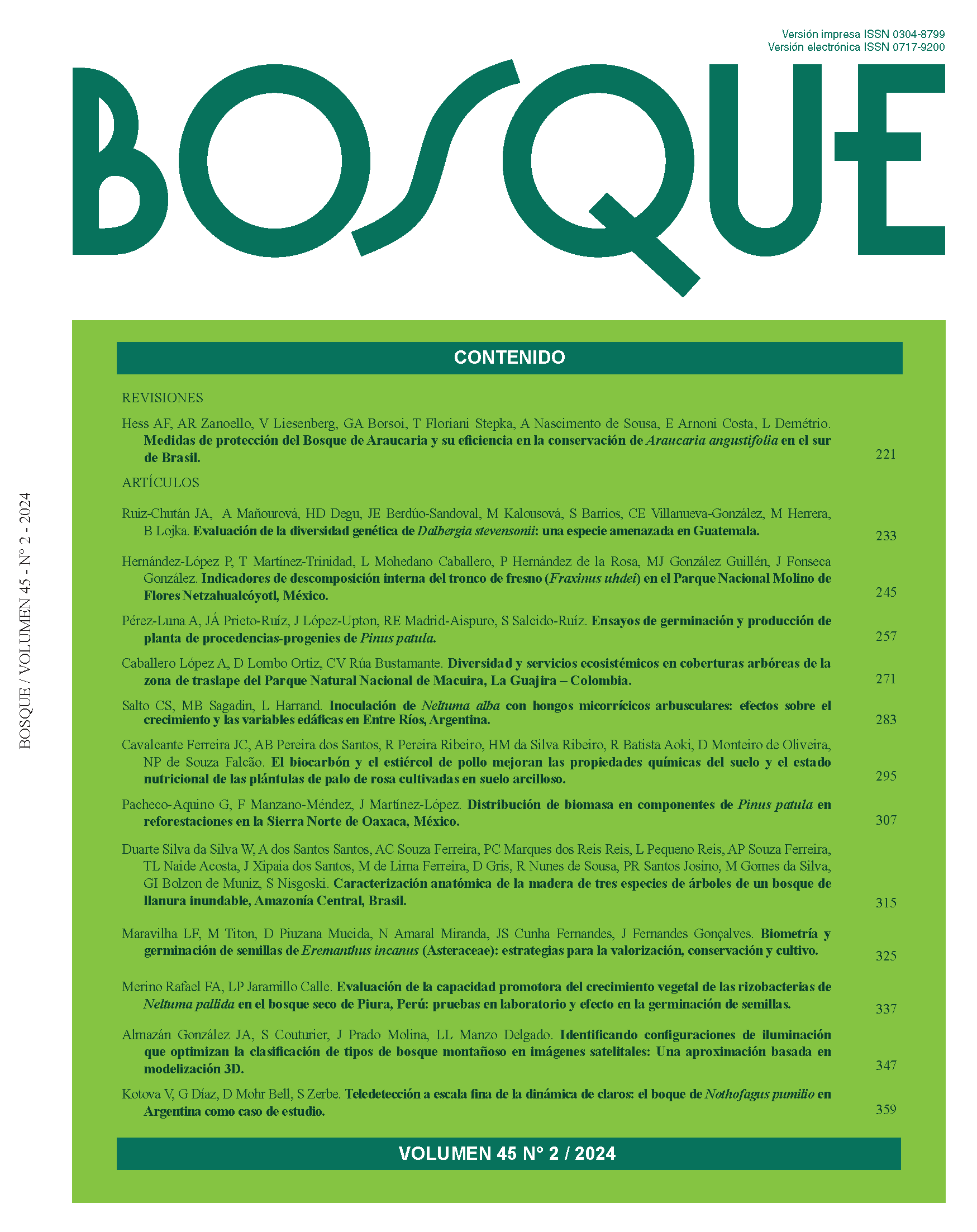Biometrics and seed germination of Eremanthus incanus (Asteraceae): strategies for valorization, conservation, and cultivation
Conteúdo do artigo principal
Resumo
Eremanthus incanus is a native tree of Brazil with economic, ecological, and social importance, but it faces risks due to predatory exploitation and a lack of research. The objective of this study is to evaluate the biometrics and seed germination of different mother trees in order to contribute to the valorization, conservation, and cultivation of the species. Phenotypically, 10 mother trees were selected from a Candeia population located in the Diamantina region of Minas Gerais, from which seeds resulting from open pollination were collected. For the biometric analysis, 100 seeds from each mother tree were randomly sampled, distributed on millimeter paper in four repetitions of 25 units each, and evaluated for weight, length, and width. The germination study began with disinfestation and selection of seeds using the densimetric method. Subsequently, the material was placed in germination boxes containing germitest paper. The experiment was set up in BOD (Biochemical Oxygen Demand) germination chambers following a randomized block design, with ten mother trees and four repetitions of 25 seeds per plot. Germination was evaluated on alternate days, until a constant point was reached. Significant effects of E. incanus mother trees were observed on biometric variables as well as on the germination rate and germination speed index of the seeds. Understanding these effects advances knowledge about the species and its potentialities, contributing to the development of more efficient propagation and conservation strategies.


 https://orcid.org/0000-0001-5846-3516
https://orcid.org/0000-0001-5846-3516